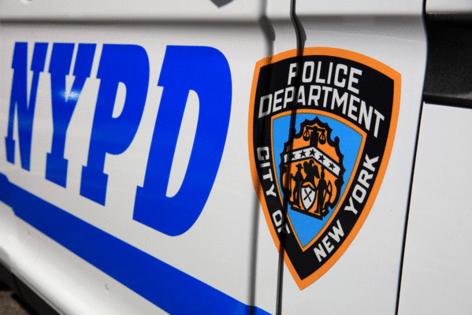Mamdani, Tisch could clash over proactive policing, legality of NYPD stops
Published in News & Features
NEW YORK — The latest report from the federal monitor overseeing civil rights compliance at the New York Police Department points to a potential flash point for the incoming Mamdani administration, with profound implications for public safety in the city.
At issue is the ongoing disparity between street stops based on a suspect’s description and conducted mostly by patrol officers — and those that are self-initiated and often carried out by officers assigned to specialty units tasked with getting guns and drugs off the streets.
While those stops are often criticized as being overly aggressive, proponents say there is a direct correlation between that sort of “proactive policing” and the dramatic reductions in crime across the five boroughs over the last several years.
But Zohran Mamdani, a democratic socialist who as a state Assemblyman has been critical of the NYPD, has already said he would eliminate the Strategic Response Group, which responds to protests.
Any move to eliminate other units, such as Neighborhood Safety Teams, whose stops were called into question in a previous report by the monitor, or to curb the emphasis on quality of life offenses may well put him at direct odds with Commissioner Jessica Tisch, who he is trying to keep on board.
A spokesperson for the mayor-elect declined to comment for this article.
The NYPD has repeatedly said it has various checks in place that allow it to flag bad stops and retrain the officers who conduct them.
But the recent report by monitor Mylan Denerstein, released three weeks ago and based on a review of 300 stops made during the last three months of 2024, raises a number of issues. Chief among them that while 89% of the analyzed stops were found to be legally justified, the rates dropped sharply when an officer also conducted a frisk (71%) and a more invasive search (73%). A previous review of stops the last quarter of 2023 determined 90% of the stops were legally justified.
The officers’ front-line supervisors, meanwhile, found fault with only 1% of the stops, the current report said, “suggesting continued inadequate supervision at the command level.”
A stop is legally justified if the officer has a reasonable suspicion that the person being stopped has committed a crime or is about to commit a crime. A stop can been seen as illegal if there is no reasonable suspicion.
Daniel Lambright, special counsel for criminal justice litigation at the New York Civil Liberties Union, said that shows that flagging bad stops “and merely retraining officers are only one part of the solution.”
“We’re years into this process,” he added. “The fact that supervisors are not finding problems with these stops shows this is a huge problem.
But Tisch, who declined to be interviewed for this article, said at a Citizens Crime Commission breakfast in April that through its ComplianceStat, which was created two years ago, ” supervisors are held responsible for patterns of conduct, not just spikes in crime.”
The monitor’s report broke down the stops into two categories and noted that self-initiated stops had a significantly lower lawful rate than the stops done after patrol officers responded to a call and searched for a suspect based on a specific description.
According to the report, self-initiated stops were done legally 81% of the time, compared to 96% of the time for stops prompted by a suspect’s description.
But 62% of the frisks and 60% of the searches that followed self-initiated stops were done properly, the report said, compared to frisks, 94%, and searches, 81%, that followed a stop based on a description.
“I don’t think the discrepancy should be that large,” Lambright said. “It suggests that officers are going on hunches not based on law.”
Michael Gerber, the NYPD’s deputy commissioner for Legal Matters, testified at a City Council hearing last December that stops have dropped about 90% since 2011, the high watermark for stops, nearly 686,000.
He also stressed that stops “can be fast-moving, complicated, and potentially dangerous,” with officers often making split-second decisions based on incomplete information.
A police spokeswoman on Friday added that the NYPD has disbanded the Public Safety Teams, which also had been criticized in a previous report by the monitor. The best of the PST officers, she said, will join the Neighborhood Safety Teams, whose officers are better trained.
The monitor’s report did note that officers assigned to the Housing Bureau conducted 90% of their stops legally, with an even higher rate, 96%, for stops involving suspected trespassers.
And it said internal audits by NYPD’s Quality Assurance Section, which are typically done weeks or months later, “have significantly improved and closely align with the monitor’s findings.”
But Robert Gangi, who heads the Police Reform Organizing Project, an watchdog group, said that NYPD doesn’t appear willing to punish cops who repeatedly stop people without legal justification.
“The problem is deeply embedded,” he said.
The monitor was ordered in 2013 after Manhattan Federal Court Judge Shira Scheindlin ruled that found that the the NYPD’s stop, question and frisk tacitcs violated the constitutional rights of minorities.
Denerstein succeeded the first monitor, Peter Zimroth, who died in 2021.
©2025 New York Daily News. Visit nydailynews.com. Distributed by Tribune Content Agency, LLC.







Comments